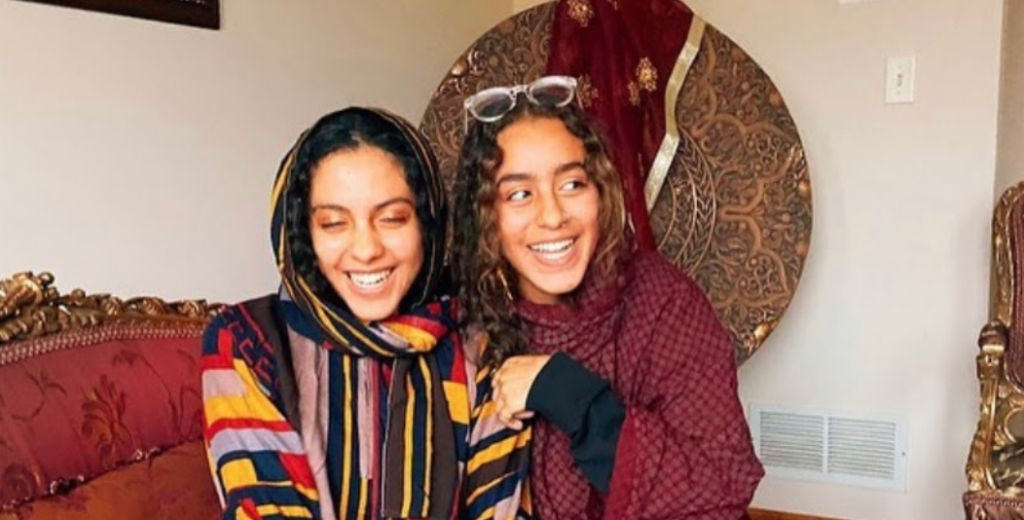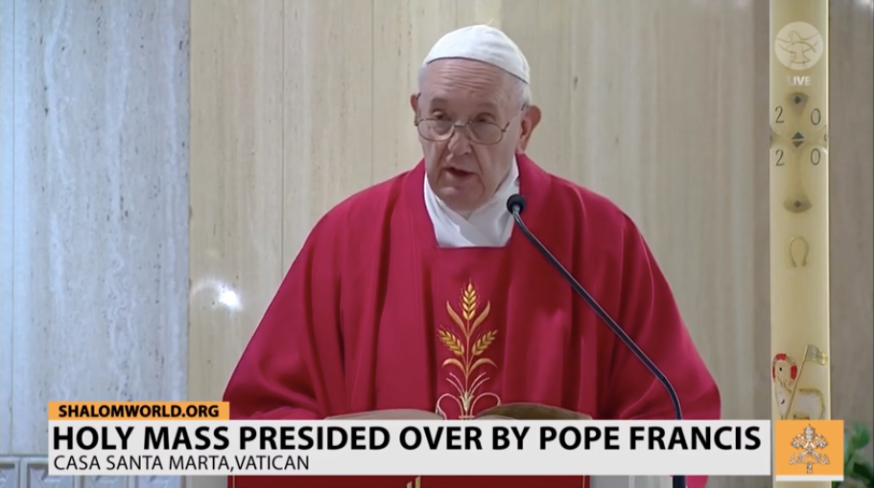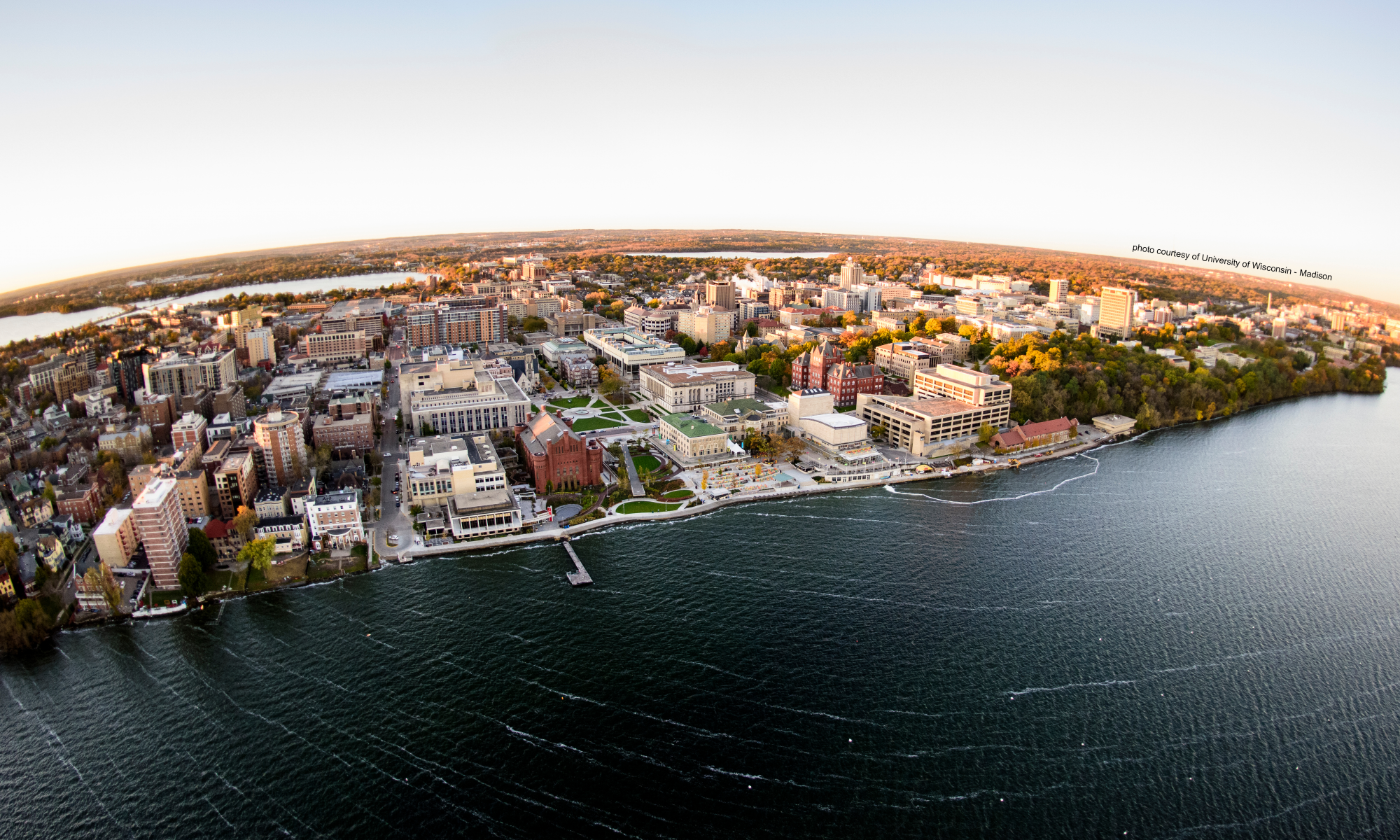Keeping the Faith: How different religious communities practice faith during COVID-19
By Tamia Fowlkes
An increased level of self-awareness. An abundant gratitude for waking up every morning. More conversations with the people you love. It seems almost certain that most people would not have imagined they would achieve this by staying in the house for two months straight.
In the midst of constant death, struggle and extreme uncertainty, communities around the world are identifying ways to cope and deal with the consequences of COVID-19 in their everyday lives. Religious communities have been especially impacted in this journey as their experiences practicing their faith have rapidly changed.

Finding Your Center
On the first day of Ramadan, Noor Bekheit, a junior at Washington University celebrates the holiday at home for the first time in three years. To her advantage, being stuck at home for the past few weeks and for the duration of Ramadan provides a deeper and more intentional meaning to the holiday.
“Ramadan is very specific and truly based on community,” Bekheit shared. “Of course, there is fasting and getting closer to God and becoming one within your own spiritually, but a lot of the rituals like breaking your fast at sunset, praying and celebrating are usually done with other people.”
During Ramadan, one of the holiest months of the Islamic calander, Muslim communities take part in fasting and prayer from sunrise until sunset. According to Bekheit, during this time there are usually dinner parties to attend in which families come together to share in meals and quality time. Bekheit emphasized that the spirit of giving and sharing is what makes the holiday most enjoyable.
“It’s been interesting to think about, we have been getting creative with how we connect. My family decided we would cook for our other family members and drop it off at their doors. We are supporting each other in eating each other’s food, connecting virtually and engaging in storytelling and prayer and trying our best to uphold the traditions we love, even though it’s not exactly the same.”
Bekheit expressed her gratitude for having the resources to stay healthy during this time and noted how the experience has enabled her to become more centered. “I’ve been trying to figure out how to get my schedule together and stay active and healthy while also balancing what I want to do during Ramadan. I want to read the Quran every day, do journaling and reflection and really devote my time to bettering myself as an individual.”
Though the moment has presented itself as a challenge, Bekheit shared her confidence in the prospect of good things in the future. “Being able to believe that I cannot continue to stress and worry about this because I truly believe that it is up to God is so reassuring,” she said. “This probably isn’t the way we wanted to spend Ramadan but it’s helping us get to know ourselves.”
Hearing the Truth
Every morning Dr. Norman Booker and his wife Sharon wake up, drink some coffee or a healthy breakfast smoothie and enjoy each other’s company at the coffee table. Being present and prayerful remains a priority in their household.
“We’ve made a prayer tabernacle in our home,” Booker said. “Every day around 12:00 p.m., at lunch time, we’ll go into our prayer closet and talk to God. We pray, we intercede in prayer, we post notes on the wall for deliverance and healing and the protection of others, but you can’t take credit in your prayer for something specific. For us, prayer keeps us in a community of faith.”
Booker, who has a doctorate in theology and has worked in ministries in the Church of God in Christ throughout his life, shared how his faith has guided him through the tremendous struggle that Coronavirus has posed to many families across the country. “I’ve lost friends and relatives, and I’ve cried and mourned constantly,” Booker said.
In detailing his own personal experiences with the virus, Booker shared, “The lord has given to me an understanding that God allows certain things to happen because he told us that these trials were surely going to come and faith is really for keeping us able to go through.”
Optimism, faith and community seem to be a common player in many religious communities’ ability to overcome the challenges of social distancing and change in worship. Booker noted how these lessons can serve to uplift, encourage and challenge individuals to dig deeper in their faith journeys. “God has a way of allowing things to challenge and teach lessons to enhance our faith and our relationships. These things have made us closer. I’ve called people that I haven’t talked to in months and years because we’re reaching out and trying to connect,” said Booker.
“My sister says ‘I’m gonna go crazy,’ and I always tell her not to put that into the world,” Booker said. “You can make yourself miserable by continuing to say so. I believe you can speak yourself into being joyful and happy, so my faith has grown exponentially because I’ll just sit down and listen. If I feel in my spirit that it’s something I need to hear, I listen.”

Observing the Magnificent
Lisa Metz, a theology teacher at Divine Savior Holy Angels High School in Milwaukee, Wisconsin has remained relatively optimistic about the state of her current situation. As Metz and her students transitioned to online learning, it became crucial to seek positivity and hope within her community and home.
“Staying home and trying to be kind to ourselves was most important because at first I had this idea that we had to get all this stuff done and be super productive, and that wasn’t healthy,” Metz said. Maintaining an awareness of her situation and being present while teaching her students and caring for her family has motivated Metz to continue to learn, grow and reach out during her time at home.
“We’re going to have to keep doing this, perhaps for a long time, but that’s okay because there are lots of ways to be Church,” Metz said. “The second semester classes I teach focus on social justice so we’ve been able to look at the challenges related to coronavirus in relation to urban and suburban communities and the disparity of infection. We’ve turned our attention to that and it has lent itself well to conversations about justice and faith.”
When reflecting on the Easter story, Metz shared the importance of recognizing that though the present moment is incredibly difficult, the solidarity of the experience and prospect of overcoming challenges is what shapes the human spirit.
“We have this puzzle table set up in our living room, in front of our picture window where we’ve been opening up the curtains a lot to let in the light. We normally don’t do that much. Through this window we can see a bush, and there’s a cardinal that made a nest and laid eggs right outside our window,” Metz said. “I just think we would’ve never been able to see that as a family if we kept our rushed routine and never just sat and looked,” Metz said. “You can have some great moments come out of this difficulty.”
In exploring the experience of a variety of different faith communities, one thing remains clear. Hope and community are key players in the journey towards feeling uplifted and secure. Despite the immense struggle and pain felt around the world, these individuals and the communities they exist within strive to enhance their faith through community, observation and optimism.
